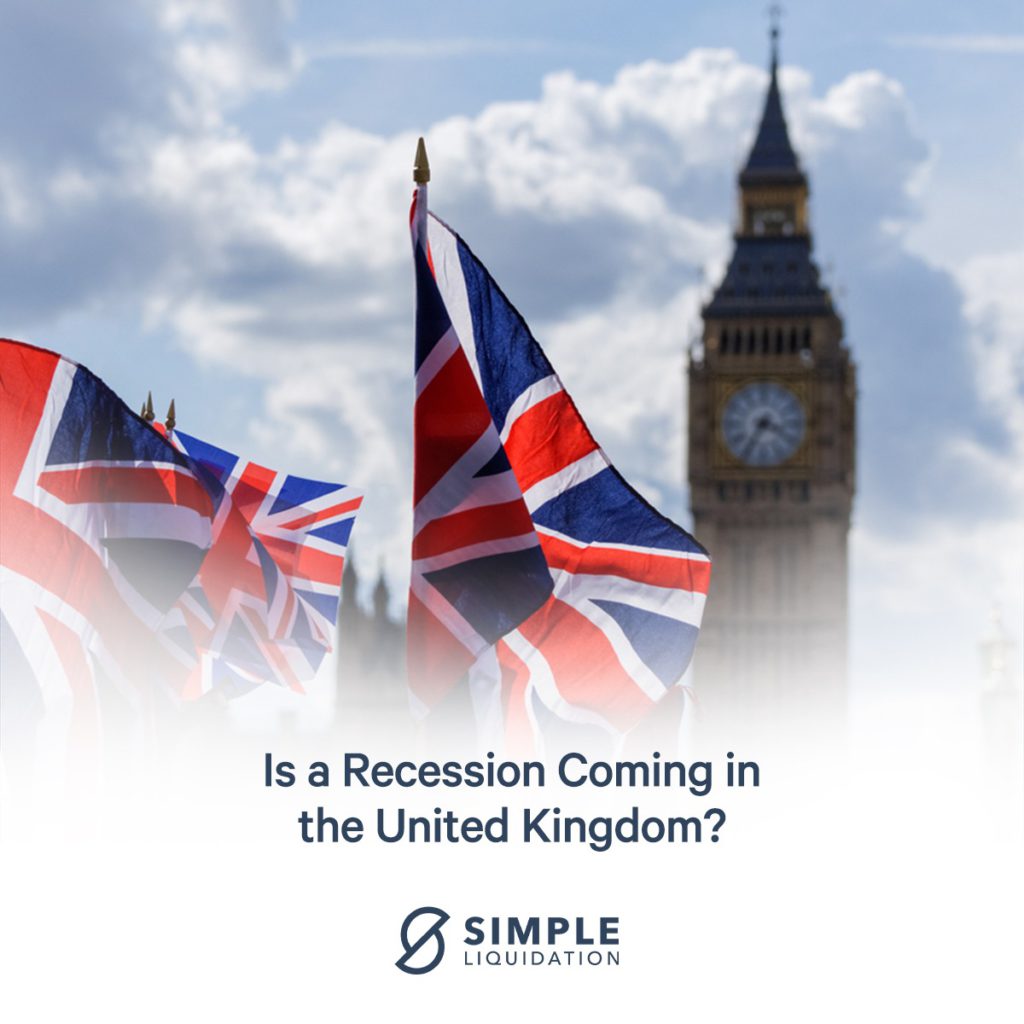With rising inflation and the cost of living crisis in the UK, there has been much talk in recent months of an impending recession in the UK. Some experts believe that the country is already in a recession, albeit mildly, while others are predicting 2023 is the year a recession will hit the UK.
Others are saying that although it may look like the UK is in a recession, there are certain industries bucking the trend. It’s hard to decipher whether a recession is looming, particularly when the economy records a growth of 0.5% in May this year. Whilst this may be a small growth, it is an upward trend that many experts hadn’t predicted.
On the reverse side of the coin, GDP in the UK dropped by 0.3% in April as the cost of living crisis started to really bite. So, is there going to be a recession in the UK?
What is a recession?
The accepted definition of a recession is when the UK’s economy contracts (tightens) over two consecutive quarters, i.e. six months. A recession is measured by the UK’s gross domestic product (GDP), and when there is at least six months of continuous contraction, the Bank of England will officially announce a recession.
Currently, whilst the Bank of England is predicting a “sharp economic slowdown” in growth and that the UK’s GDP is likely to remain at 2022 levels during 2023, they can’t actually say there is a recession in the UK because there hasn’t been continuous contraction over a six month period. May’s economic growth, albeit small, interrupted that contraction period.
How is a recession triggered?
There are a number of factors that contribute to entering a recession – the strength of the economy, the cost of living, interest rates, higher inflation and reduced spending. On their own, they can be dealt with individually. However, when combined, it is almost impossible to stop triggering a recession.
In the UK, there are multiple factors that are coming together. The war in Ukraine has impacted the supply of oil and gas, which, in turn, has increased demand and therefore driven up prices. It has also had an effect on the supply of grain – Ukraine is one of the biggest suppliers of grain worldwide – which has, in turn, influenced the prices of certain products in supermarkets.
This puts even more pressure on the public’s purse and, therefore, on spending, which impacts GDP. Add to the mix rising inflation and subsequently increased interest rates – the Bank of England has pushed up interest rates to long-term stem the inflation rise – and you can get a good picture of the current state of the UK’s economy. It’s because of these factors that many in the financial sector are hesitantly forecasting a recession in the UK, if not this year, in 2023.
As businesses started to emerge from the Covid-19 pandemic and the economy recovery was swift and strong – growth in the UK in the first quarter of 2022 was one of the fastest in Europe – they were hit with a war in Ukraine, Brexit issues, soaring energy bills and rising inflation, which is predicted to hit 10% by the end of 2022.
Although the Bank of England has raised interest rates to 1% (the highest in 13 years) in an effort to stop the inflation rise, they can’t rule out a further increase in the near future. This could mean rates rising to as much as 2% by the end of this year and maybe to 2.5% in 2023 if inflation doesn’t start to reduce.
What would happen if there is a recession in the UK?
If there is a recession in the UK, the majority of businesses will draw in the purse strings. They will want to save money where they can to ensure they can pay their rising bills. This will impact peoples’ jobs; rising inflation, energy price increases, and higher supplier costs will mean that businesses aren’t able to pay all their wages.

Add into the mix the impact a further increase in the Bank of England interest rate will have on businesses as it hits the rates of interest on loans and outstanding debts; there could be a recession in the UK at a later date.
This may also result in job cuts being necessary, which then drives up unemployment. For example, in the 2008/09 recession, unemployment reached 10% at the peak of the recession.
Good news on the horizon?
The good news is that not every expert believes there will be a recession in the UK. In fact, the Office for Budget Responsibility (OBR) is forecasting growth of 3.8% in 2022. The International Monetary Fund is also confident about the economic outlook, predicting a 3.7% growth. Incidentally, this is the joint-strongest growth out of the G7 nations.
Whilst inflation remains high – 9.1% in the 12 months to May 2022 – the small increase in the economy in May does give promising signs that the UK could avoid a recession. Economists are of the mind that the UK will experience a recession, albeit it mild, and have warned MPs of their predictions. What’s keeping it at bay at the moment is that wages and prices – they work against each other and can drive up inflation – haven’t been joined by a weak employment market.
Another factor that is ignoring the rising energy prices, cost of living crisis and Brexit, as well as rising interest rates and inflation, is the property market. At the moment, property prices are defying predictions. Indeed, HMRC’s transaction data shows that there was yet another increase in completed sales in April 2022, rising by 1.6%. Whilst this may not be as much as April 2021, it is still strong growth.
So, the UK could be in double trouble if current predictions of a property crash materialise. If the property market remains strong into 2023, coupled with the small but encouraging recent growth in the economy in May 2022, the UK may just yet escape a recession.

If you are struggling with debt, are considering winding up a solvent company or declaring bankruptcy, contact Simple Liquidation for assistance. For more information on how our professional insolvency practitioners may be able to help your business, contact us today.




